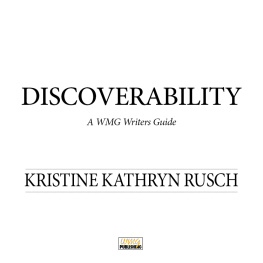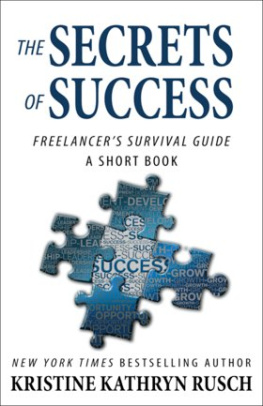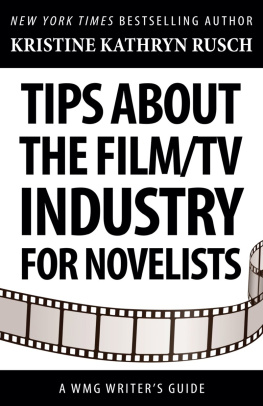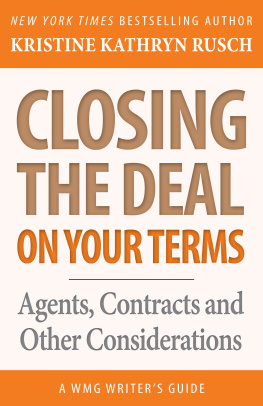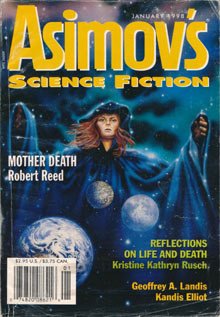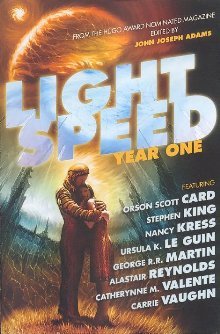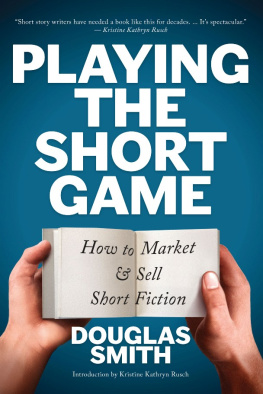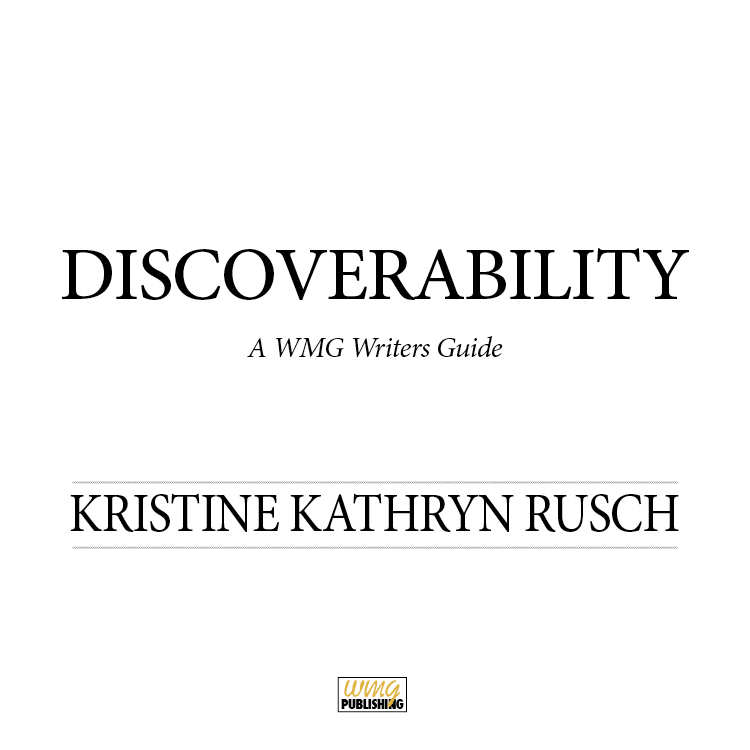
INTRODUCTION:
THE REASON FOR THIS BOOK
Everyoneincluding self-published authorsis worried about the mountain of crap that self-publishing will (has?) brought into the industry.
Everyone ignores two important facts: one persons crap is another persons beloved book, and publishing has always produced books in great volume. The recently merged Penguin Random House (or Randy Penguin as one of my favorite PRH authors calls it) will publish 15,000 new titles in 2014, not counting everything in its backlist.
I hate to say this, but a lot of those 15,000 titles will be crapat least to someone.
The number of books published in the United States has always been extremely high. If you add up the number of books published worldwide, youll realize that, with so many choices, its amazing anyone reads the same book at all.
Traditional publishers tell writers two contradictory things:
1. Only traditional publishers can help books find an audience.
2. Writers must promote their traditional published books in order to find an audience.
Um, well, no.
If traditional publishers actually knew how to find an audience, then writers wouldnt have to promote their traditionally published books. Its really that simple.
Traditional publishers dont knowand have never knownhow to get books in the hands of readers. And writers generally mispromote their books.
Yet readers find books anyway.
Among writers, the promotion discussion has gone on as long as Ive been in the business. And its always startled me, because I have a background in business outside of publishing. Ive also been very active inside traditional publishing, and the one thing I learned early is that traditional publishing has no idea how to market anything well.
First, let me share some terms with you.
By traditional publishing, I mean publishers who work in the old model that existed before the changes in the industry.
That model works like this:
Writers provide content (product) to Publishers.
Publishers distribute that content to Distributors .
Distributors distribute books to Bookstores.
Bookstores distribute that content to Readers .
The new model, which has evolved in this century (and has become prevalent in the years since 2009) works like this:
Writers provide content (product) to Bookstores .
Bookstores distribute that content to Readers .
Most people call this model self-publishing , but I call it indie publishing , because, if youre going to do it right, you will need a team to help you. At minimum, youll need a cover designer, a copy editor, a line editor, a content editor, and an accountant.
You can learn how to do covers yourself and how to handle your own accounting. But youll always need a second eye (a copy editor) on your team. And once you have a team, youre no longer a self -publisher. Youre an independent publisher.
Ive worked in traditional publishing in every single job except as an agent (and youll note that I dont include agents in either model above. In this modern world, theyre not necessary). I have started two separate successful traditional publishing companies, and advised the owners of several other traditional publishing companies.
Ive edited, worked in bookstores, and helped distributors. Ive even worked in libraries.
I know publishing. And since ebooks and print-on-demand disrupted the staid old publishing business, Ive also become whats known as a hybrid writer , someone who indie-publishes and traditionally publishes her work.
Because I can never do just one thing, Ive owned successful retail businesses. Im in the process of buying anotheror, to be more accurate, buying back the business my husband and I sold seven years ago.
Ive owned at least ten businesses. (I always forget one or two, which is why Im not being exact here. Im too lazy to go back and figure it out accurately.)
I still own five. One of those five is my writing business. Another is a publishing company. The rest exist outside the realm of publishing entirely.
Id like to say that most of my writing has been in fiction, but thats not true. Ive written nonfiction professionally since I was sixteen years old. For more than a decade, my primary writing income came from my work as a business writer for major magazines. I interviewed the owners of countless start-ups and long-term success stories. I wrote business cover stories on everything from Hollywood production companies to game companies to investment firms.
I also worked as a broadcast journalist and spent a few years as the news director of a non-profit radio station, where I learned how different non-profits are from for-profit businesses.
I have written ad copy for radio, newspapers, and television. In the modern era, Ive written ad copy for Kickstarter projects and other online ventures. Ive done marketing for almost every business Ive been involved in, and I noticed, well before one of my blog readers mentioned in the comments, that Publishing is the only business in which marketing is an entry level position.
Yeah, and it shouldnt be. The fact that it is shows how unconcerned traditional publishers are with marketing.
This book will not tell you how other writers market their books. Instead, Ill look at the way other businesses market their product .
Once you finish writing, your book must go from being your baby to being a widget. If you cannot make that shift, then close this book and set it back on the shelf (or delete this free sample from your ereader). Until you can honestly call your writing a product , you will not be able to do the things listed inside this volume.
I have written this book with a specific target audience in mind. That target audience is composed of established writers. Beginners can read this volume for information for their future, but until youve published several titles, the content of this volume is not for you.
I initially wrote this book in 3,000-word chunks that I posted on my weekly business blog. The original posts are still online, along with the comments from all of the readers. You can find them on my website, kristinekathrynrusch.com. Some of the comments are very useful. Some arewell, youll see.
I did write the blog posts out of order, so some of the context that you get in this book is missing. Also, some of the information is dated already, even though I put up the first post less than a year ago. That dated information is still available on the website, but I have updated that information for the book.
Because I initially wrote these chapters for my blog, I had to put up a set of assumptions. I wanted all of the readers to know where Im coming fromand I still do.
Here are the assumptions Im making for this volume:
Assumption #1: You will read this book in order. Usually people who buy self-help books read only the chapters that interest them. If you read this book out of order or skip chapters, you will miss a lot of important information. This book will only help you if you read it in its entirety.
Assumption #2: With only a few exceptions, we will be talking about fiction here. There are promotion techniques that work for nonfictioneven on the first bookthat do not work for fiction. I dont want to muddy the waters here. Were discussing fiction in this book.
Assumption #3: You have learned your craft well enough to intrigue readers. You know how to tell a good story; you have grammar, spelling, and punctuation under control; you create interesting characters; and you write what you love.

